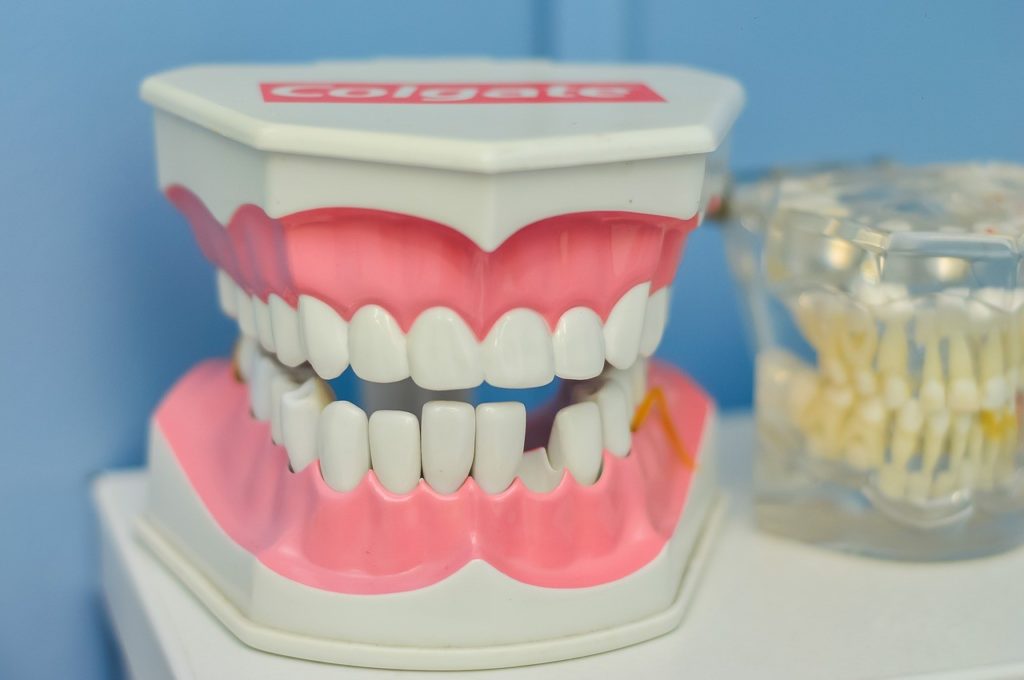
By Lindsay Miller
Good oral hygiene leads to good oral health. This is important for everyone, but especially vital to those with diabetes. Poor oral health among diabetes patients can lead to other health problems, which can in turn lead to worsening oral health. It’s a vicious cycle that you want no part of. Here’s why it’s so important to keep up with your oral hygiene and some tips to help.
Diabetes and Oral health
If you have diabetes, you are at greater risk for gum disease. As the National Institutes of Health says, “good blood glucose control is key to controlling and preventing mouth problems. People with poor blood glucose control get gum disease more often and more severely.” Once you have gum disease, it then becomes harder to control your blood sugar. This is the unfortunate cycle.
Gum disease can be painful and can lead to tooth loss as well. It makes eating more difficult and can lead to a persistent feeling of dry mouth due to loss of saliva. Saliva is what protects our teeth from cavities, so those with diabetes are at a greater cavity risk than the general population.
Know the basics
Healthy oral health isn’t complicated if you develop a routine and stick to it. All most people need to do on a regular basis at home is brush and floss.
For those with diabetes who may be battling sensitive gums already it’s vital that you use a soft-bristled toothbrush. You should brush at least twice a day for about three minutes each time to fully clean your teeth. Don’t forget to brush your gums as well – just be gentle. You’re not going to clean your teeth better by scrubbing as hard as you can – you’re just going to damage your gums.
Many of us hate to floss, but it’s vital in any good oral hygiene routine. Brushing can only get the surface of your teeth, and you need to clean between your teeth and near the gum line. You should floss once a day at the very least. Diabetes.org has a good guide to proper brushing and flossing.
Don’t skip the dentist
Even if you keep up with a solid home oral care routine, you cannot forgo regular visits to the dentist. As one dentistry organization notes, “many oral health conditions do not present symptoms until they have advanced. Regular visits to the dentist make it easier to keep your oral health in check.”
Make sure you let your dentist know that you are diabetic.
What if my oral health is already at a troubling stage?
If you are already dealing with poor oral health it’s vital that you reverse your bad hygiene practices. Stop smoking. Limit your consumption of sugary sodas. Begin brushing and flossing daily. Monitor your blood glucose levels more closely, as abnormal sugar levels are only going to make your oral health problems worse.
If you are already missing teeth, a good option is dental implants – artificial teeth that are fixed to the jawbone, replacing rotted or damaged teeth. One of the major benefits of dental implants, as opposed to a bridge for instance, is that they don’t require modifications to existing teeth. You get to leave more of your natural teeth intact, simply replacing those bad teeth with new, artificial ones. Check here for a complete guide to dental implants.
Everyone should practice good oral hygiene as oral health affects not just your mouth but other parts of your body as well. This is especially true for those with diabetes, who must be extra vigilant with their teeth and gums. Brush and floss daily, don’t forget your dentist appointments, and monitor your blood sugar for better oral health.
Photo Credit: Pixabay.com






 May 19, 2018
May 19, 2018 


 October 26, 2020
October 26, 2020 
